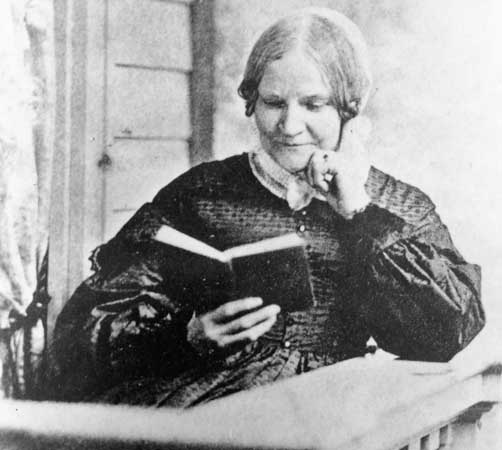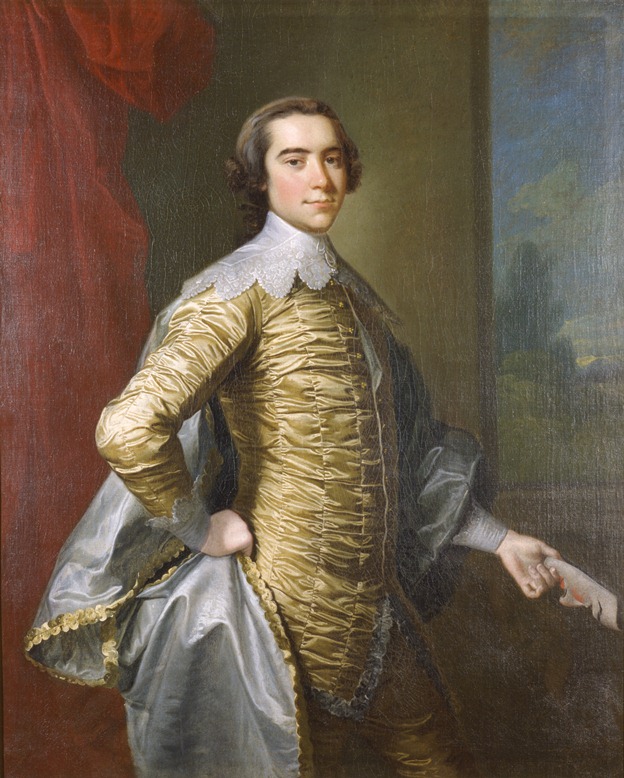|
A Treatise On The Patriarchal, Or Co-operative System Of Society
''A Treatise on the Patriarchal, or Co-operative System of Society as it Exists in Some Governments and Colonies in America, and in the United States, Under the Name of Slavery, with its Necessity and Advantages,'' was the first major defense of slavery published in the United States. Written by Florida slave owner, planter, and Quaker Zephaniah Kingsley, it was first published under the signature “A Resident of Florida” in 1828, although Kingsley's name is found at the end of the Preface. It was reprinted three times (1829, 1833, and 1834), indicating significant readership. No other pro-slavery writing in the United States was reprinted as often. Kingsley believed that free people of color, better treated in Spanish Florida than in the Southern United States, should be allowed to own property, and other rights, and made the case that they were good citizens and beneficial to the country in which they lived. Daniel Stowell included an annotated edition of the ''Treatise'' in ... [...More Info...] [...Related Items...] OR: [Wikipedia] [Google] [Baidu] |
Quaker
Quakers are people who belong to a historically Protestant Christian set of Christian denomination, denominations known formally as the Religious Society of Friends. Members of these movements ("theFriends") are generally united by a belief in each human's ability to experience Inward light, the light within or see "that of God in every one". Some profess a priesthood of all believers inspired by the First Epistle of Peter. They include those with evangelicalism, evangelical, Holiness movement, holiness, Mainline Protestant, liberal, and Conservative Friends, traditional Quaker understandings of Christianity. There are also Nontheist Quakers, whose spiritual practice does not rely on the existence of God. To differing extents, the Friends avoid creeds and Hierarchical structure, hierarchical structures. In 2017, there were an estimated 377,557 adult Quakers, 49% of them in Africa. Some 89% of Quakers worldwide belong to ''evangelical'' and ''programmed'' branches that hold ... [...More Info...] [...Related Items...] OR: [Wikipedia] [Google] [Baidu] |
Denmark Vesey
Denmark Vesey (also Telemaque) ( July 2, 1822) was an early 19th century free Black and community leader in Charleston, South Carolina, who was accused and convicted of planning a major slave revolt in 1822. Although the alleged plot was discovered before it could be realized, its potential scale stoked the fears of the antebellum planter class that led to increased restrictions on both slaves and free blacks. Likely born into slavery in St. Thomas, Vesey was enslaved by Captain Joseph Vesey in Bermuda for some time before being brought to Charleston. There, Vesey won a lottery and purchased his freedom around the age of 32. He had a good business and a family, but was unable to buy his first wife Beck and their children out of slavery. Vesey worked as a carpenter and became active in the Second Presbyterian Church. In 1818 he helped found an independent African Methodist Episcopal (AME) congregation in the city, today known as Mother Emanuel. The congregation began with t ... [...More Info...] [...Related Items...] OR: [Wikipedia] [Google] [Baidu] |
Treatises
A treatise is a formal and systematic written discourse on some subject, generally longer and treating it in greater depth than an essay, and more concerned with investigating or exposing the principles of the subject and its conclusions."Treatise." Merriam-Webster Online Dictionary. Accessed September 12, 2020. A monograph is a treatise on a specialized topic. Etymology The word 'treatise' first appeared in the fourteenth century as the Medieval English word ''tretis'', which evolved from the Medieval Latin ''tractatus'' and the Latin ''tractare'', meaning to treat or to handle. Historically significant treatises Table The works presented here have been identified as influential by scholars on the development of human civilization. Discussion of select examples Euclid's ''Elements'' Euclid's ''Elements'' has appeared in more editions than any other books except the ''Bible'' and is one of the most important mathematical treatises ever. It has been translated to numer ... [...More Info...] [...Related Items...] OR: [Wikipedia] [Google] [Baidu] |
Slavery In The United States
The legal institution of human chattel slavery, comprising the enslavement primarily of Africans and African Americans, was prevalent in the United States of America from its founding in 1776 until 1865, predominantly in the South. Slavery was established throughout European colonization in the Americas. From 1526, during early colonial days, it was practiced in what became Britain's colonies, including the Thirteen Colonies that formed the United States. Under the law, an enslaved person was treated as property that could be bought, sold, or given away. Slavery lasted in about half of U.S. states until abolition. In the decades after the end of Reconstruction, many of slavery's economic and social functions were continued through segregation, sharecropping, and convict leasing. By the time of the American Revolution (1775–1783), the status of enslaved people had been institutionalized as a racial caste associated with African ancestry. During and immediately ... [...More Info...] [...Related Items...] OR: [Wikipedia] [Google] [Baidu] |
1828 Non-fiction Books
Eighteen or 18 may refer to: * 18 (number), the natural number following 17 and preceding 19 * one of the years 18 BC, AD 18, 1918, 2018 Film, television and entertainment * ''18'' (film), a 1993 Taiwanese experimental film based on the short story ''God's Dice'' * ''Eighteen'' (film), a 2005 Canadian dramatic feature film * 18 (British Board of Film Classification), a film rating in the United Kingdom, also used in Ireland by the Irish Film Classification Office * 18 (''Dragon Ball''), a character in the ''Dragon Ball'' franchise * "Eighteen", a 2006 episode of the animated television series ''12 oz. Mouse'' Music Albums * ''18'' (Moby album), 2002 * ''18'' (Nana Kitade album), 2005 * '' 18...'', 2009 debut album by G.E.M. Songs * "18" (5 Seconds of Summer song), from their 2014 eponymous debut album * "18" (One Direction song), from their 2014 studio album ''Four'' * "18", by Anarbor from their 2013 studio album '' Burnout'' * "I'm Eighteen", by Alice Cooper commonly r ... [...More Info...] [...Related Items...] OR: [Wikipedia] [Google] [Baidu] |
Non-fiction Books About American Slavery
Nonfiction, or non-fiction, is any document or media content that attempts, in good faith, to provide information (and sometimes opinions) grounded only in facts and real life, rather than in imagination. Nonfiction is often associated with being presented more objectively, like historical, scientific, or otherwise straightforward and accurate information, but sometimes, can be presented more subjectively, like sincerely held beliefs and thoughts on a real-world topic. One prominent usage of nonfiction is as one of the two fundamental divisions of narrative (storytelling)—often, specifically, prose writing—in contrast to narrative fiction, which is largely populated by imaginary characters and events, though sometimes ambiguous regarding its basis in reality. Some typical examples of nonfiction include diaries, biographies, news stories, documentary films, textbooks, travel books, recipes, and scientific journals. While specific claims in a nonfiction work may pro ... [...More Info...] [...Related Items...] OR: [Wikipedia] [Google] [Baidu] |
Lydia Child
Lydia Maria Child ( Francis; February 11, 1802October 20, 1880) was an American abolitionist, women's rights activist, Native American rights activist, novelist, journalist, and opponent of American expansionism. Her journals, both fiction and domestic manuals, reached wide audiences from the 1820s through the 1850s. At times she shocked her audience as she tried to take on issues of both male dominance and white supremacy in some of her stories. Despite these challenges, Child may be most remembered for her poem "Over the River and Through the Wood." Her grandparents' house, which she wrote about visiting, was restored by Tufts University in 1976 and stands near the Mystic River on South Street, in Medford, Massachusetts. Early life and education Lydia Maria Francis was born in Medford, Massachusetts, on February 11, 1802, to Susannah (née Rand) and Convers Francis. She went by her middle name, and pronounced it Ma-RYE-a. Her older brother, Convers Francis, was educated at H ... [...More Info...] [...Related Items...] OR: [Wikipedia] [Google] [Baidu] |
Planter (American South)
The planter class, known alternatively in the United States as the Southern aristocracy, was a racial and socioeconomic caste of pan-American society that dominated 17th and 18th century agricultural markets. The Atlantic slave trade permitted planters access to inexpensive African slave labor for the planting and harvesting of crops such as tobacco, cotton, indigo, coffee, tea, cocoa, sugarcane, sisal, oil seeds Vegetable oils, or vegetable fats, are oils extracted from seeds or from other parts of fruits. Like animal fats, vegetable fats are ''mixtures'' of triglycerides. Soybean oil, grape seed oil, and cocoa butter are examples of seed oils, or fat ..., Elaeis, oil palms, hemp, Hevea brasiliensis, rubber trees, and fruits. Planters were considered part of the American gentry. In the Southern United States, planters maintained a distinct culture, which was characterized by its similarity to the manners and customs of the British nobility and Landed gentry, gentry. The cu ... [...More Info...] [...Related Items...] OR: [Wikipedia] [Google] [Baidu] |
Abolitionism In The United States
In the United States, abolitionism, the movement that sought to end slavery in the country, was active from the late colonial era until the American Civil War, the end of which brought about the abolition of American slavery through the Thirteenth Amendment to the United States Constitution (ratified 1865). The anti-slavery movement originated during the Age of Enlightenment, focused on ending the trans-Atlantic slave trade. In Colonial America, a few German Quakers issued the 1688 Germantown Quaker Petition Against Slavery, which marks the beginning of the American abolitionist movement. Before the Revolutionary War, evangelical colonists were the primary advocates for the opposition to slavery and the slave trade, doing so on humanitarian grounds. James Oglethorpe, the founder of the colony of Georgia, originally tried to prohibit slavery upon its founding, a decision that was eventually reversed. During the Revolutionary era, all states abolished the international sla ... [...More Info...] [...Related Items...] OR: [Wikipedia] [Google] [Baidu] |
Georgia State University
Georgia State University (Georgia State, State, or GSU) is a Public university, public research university in Atlanta, Atlanta, Georgia. Founded in 1913, it is one of the University System of Georgia's four research universities. It is also the largest institution of higher education by enrollment based in Georgia and is in the List of United States university campuses by enrollment, top 10 in the nation in number of students with a diverse Majority minority, majority-minority student population of around 54,000 students, including approximately 33,000 undergraduate and graduate students at the main campus downtown. Georgia State is Carnegie Classification of Institutions of Higher Education, classified among "List of research universities in the United States#Universities classified as "R1: Doctoral Universities – Very high research activity", R1: Doctoral Universities – Very High Research Activity". The university's over $200 million in research expenditures for the 2018 f ... [...More Info...] [...Related Items...] OR: [Wikipedia] [Google] [Baidu] |
Charleston, South Carolina
Charleston is the largest city in the U.S. state of South Carolina, the county seat of Charleston County, and the principal city in the Charleston–North Charleston metropolitan area. The city lies just south of the geographical midpoint of South Carolina's coastline on Charleston Harbor, an inlet of the Atlantic Ocean formed by the confluence of the Ashley, Cooper, and Wando rivers. Charleston had a population of 150,277 at the 2020 census. The 2020 population of the Charleston metropolitan area, comprising Berkeley, Charleston, and Dorchester counties, was 799,636 residents, the third-largest in the state and the 74th-largest metropolitan statistical area in the United States. Charleston was founded in 1670 as Charles Town, honoring King CharlesII, at Albemarle Point on the west bank of the Ashley River (now Charles Towne Landing) but relocated in 1680 to its present site, which became the fifth-largest city in North America within ten years. It remained unincorpor ... [...More Info...] [...Related Items...] OR: [Wikipedia] [Google] [Baidu] |





